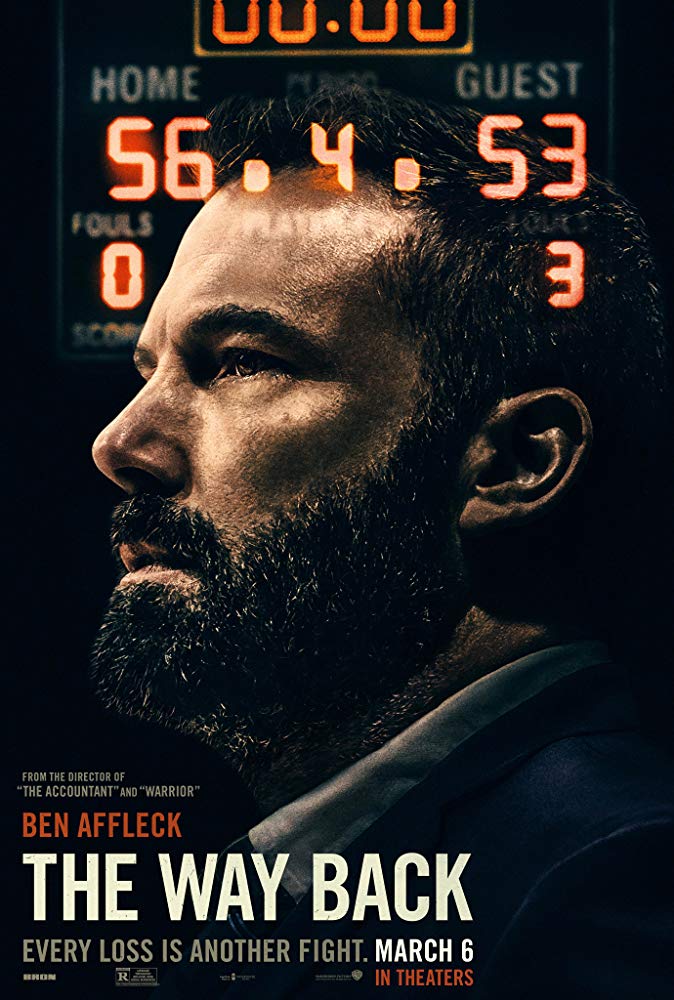The Way Back
The Way Back won't be Ben Affleck's biggest hit, but it's certain to be one of the most significant films on his resume. The actor gives a performance that's raw and real in a way we haven't seen from him before. Sometimes an actor's personal life will fuel their work. This is a great example. Affleck has publicly spoken about his struggle with alcoholism. For that reason, he fully understands the character he's playing and is fearless in showing how a functioning alcoholic drinks the pain away. It might just be the best work he's done on screen so far in his career.
Affleck is Jack Cunningham, a former high school basketball star. He's now separated from his wife Angela (Janina Gavankar) and working a construction job. At night, he either drinks himself into a stupor at the local bar or hammers down one beer after another at home. In the midst of this, Jack gets a call from Father Devine (John Aylward), the priest who runs the Catholic school where he once shot hoops, asking him to coach the team on an emergency basis. Jack doesn't really want to do it, but reluctantly agrees nonetheless. He arrives to find that they haven't done well in years.
The intersection between sports drama and addiction story gets interesting at this point. Jack begins instilling his own anger in his players, encouraging them during their first game together to “out-tough” the other team. Before long, they start winning, although the assistant coach, Dan (Al Madrigal), and the team chaplain aren't too happy about his frequent profanity and arguments with referees.
If you think The Way Back is about an alcoholic who gets sober after becoming inspired by a talented-yet-undisciplined group of high school athletes, you are not entirely correct. Jack does start to sober up for a while. Anyone who's ever known an alcoholic knows that getting sober means getting honest about the issues underlying the drinking. As the film progresses, we learn a lot more about the pain that drive's Jack's addiction. He, like many, is at great risk of relapse if his personal trauma is triggered. Brad Ingelsby's screenplay smartly offers no easy answers for the character. Jack has a long road ahead of him.
A major factor of addiction is the shame cycle. Addicts drink or use to avoid unpleasant emotions. That, in turn, causes them to screw up relationships, friendships, and jobs. Then they feel shame about letting the people in their lives down, which creates more of those unpleasant emotions they seek to avoid. Affleck brings this idea across powerfully. With every scene, he conveys how Jack has become worn down by the shame cycle. Drinking is a way of numbing himself. Anyone who wants to understand addiction more fully should study what Affleck does. Every choice he makes packs a punch.
The Way Back occasionally leans a little too heavily on the standard ingredients of sports dramas. For example, Jack mentors a player with a lack of confidence and a father who doesn't turn up for the games. (Yes, that last part resolves itself with the age-old cliche you think it will.) The team's players are generally one-dimensional, too. Most exhibit a single characteristic, like the self-impressed hot-shot who's always hitting on girls. Giving them more distinct personalities would have been a benefit.
Even if formulaic at times, The Way Back works because Ben Affleck fully embodies an alcoholic coming to terms with himself. You can't take your eyes off him. The movie's good. He's great.
out of four
The Way Back is rated R for language throughout including some sexual references. The running time is 1 hour and 48 minutes.
